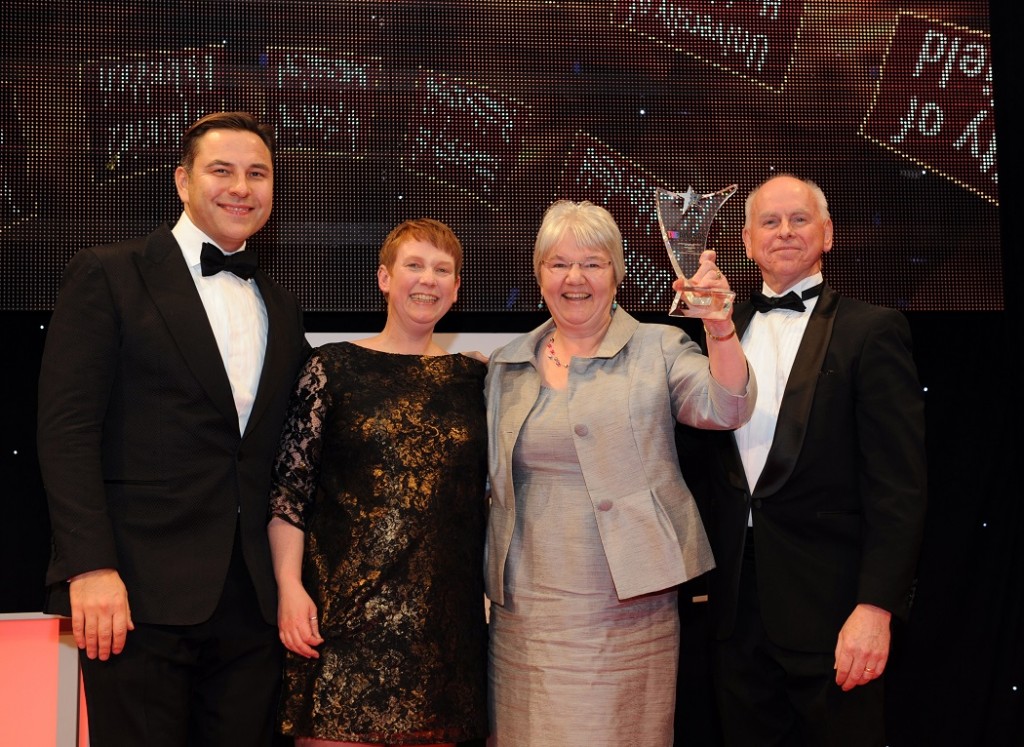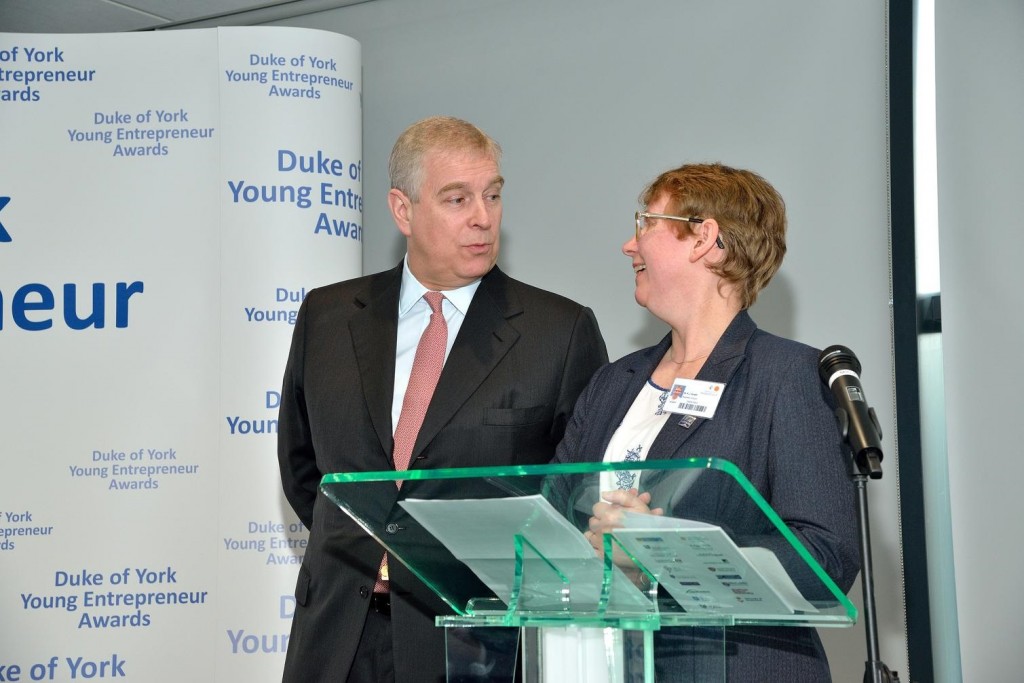In the spotlight:
Name: Kelly Smith
Location: Coventry University
Occupation: Senior Lecturer, Coventry University; Vice President for Education and Practitioner Learning, Institute of Small Business and Entrepreneurship
You are an influential individual within the enterprise education space. What does ‘enterprise education’ mean to you, and why do you think it’s important?
Enterprise education is about encouraging students to ‘be enterprising’ or ‘make ideas happen’. This can be at school, college, or university; at home; in employment; or in their own venture. Entrepreneurship education takes this a stage further into self-employment, business or social enterprise start-up and growth.
I’m biased, being a co-author, but I’m a fan of the QAA definitions for enterprise and entrepreneurship in higher education, where enterprise education is defined as:
“Enterprise education aims to produce graduates with the mindset and skills to come up with original ideas in response to identified needs and shortfalls, and the ability to act on them. In short, having an idea and making it happen. Enterprise skills include taking the initiative, intuitive decision making, making things happen, networking, identifying opportunities, creative problem solving, innovating, strategic thinking, and personal effectiveness. Enterprise education extends beyond knowledge acquisition to a wide range of emotional, intellectual, social, and practical skills.”
It’s hugely important to me that all students at university level – where I primarily work – are given the opportunity to see themselves as enterprising individuals with the potential to make a difference in whatever walk of life they choose.
How did you first become involved with enterprise education?
I started out as a psychology lecturer. I remember first hearing about enterprise and entrepreneurship education at a teaching forum for new lecturers. I couldn’t see the point and, to be totally honest, I didn’t want to hear what was being said. I wasn’t alone.
Fast forward a few years. I’d become a learning technologist for medical education. I loved it! It was in the early days of computer-aided learning and I was creating new ways to help medical students learn neuroanatomy and other basic sciences.
Then a colleague sent me through a job description to manage an e-learning initiative for enterprise education for non-business school subjects – the Technology Enhanced Enterprise Education TE3 project. I wasn’t particularly interested but, out of respect for my colleague, I did a bit of background reading on enterprise education. I found a short article on enterprise skills and was absolutely hooked from that moment on. Every skill listed was what I had been looking to develop in my psychology students. I knew then I wanted the job and threw myself into getting it.

Kelly Smith and Prof Liz Towns-Andrews accept the award for Entrepreneurial University of the Year for the University of Huddersfield at the Times Higher Education Awards 2012, presented by Prof Paul Hannon of NCEE and David Walliams
How has enterprise education changed over the years, and how does it benefit students today?
When I first started in the early 2000s, enterprise education was shorthand for both enterprise and entrepreneurship education. Projects such as TE3 had been put in place to meet the government’s agenda to stimulate more graduate businesses and help drive the UK economy. I felt quite out of place at times as I didn’t come from a traditional business school background and had no knowledge of the business start-up process.
Educators and researchers in this space are extremely supportive and welcoming, however, and willing to be challenged and challenge back. Organisations such as UKSEC (now EEUK) and NCGE (now NCEE) were bringing academics together to debate key issues, and the International Entrepreneurship Educators Conference (IEEC) was born in 2006. Ten years ago, it seemed that we were often talking at cross purposes and didn’t have a common language to base our discussions on; now, definitions are more settled. We still have our debates and sometimes heated discussions, but it now feels more in depth and meaningful.
As a community of educators, we are perhaps more confident in what we do, which I think leads to a better informed and more innovative experience for our students. Community is important here, and it is growing, as more educators from different subject areas recognise that what they have been doing for years either comes under the ‘enterprise’ umbrella or is a few simple steps away.
Education generally is evolving – for example, through the increased use of simulations and online learning, experiential learning experiences, and co-creation of learning content between students and educators. Enterprise education can be at the forefront of embracing and developing new ways of teaching and learning. If we are encouraging our students to be creative and innovate, we can be too.
Before becoming Enterprise and Entrepreneurship Course Director at Coventry University, you advised on Huddersfield University’s campaign, ‘The Enterprising Student’, which aims to embed enterprise within all subject areas by 2018. Is enterprise only relevant at degree level, or can it be included at all stages of education?
In my opinion, enterprise education – that is, making ideas happen – is relevant at any and all stages of education. Entrepreneurship education builds on enterprise education, but for me is less relevant at the early stages of education. I’m always happy to be proved wrong, however!
I was lucky to be invited onto the writing group for the 2014 All Party Parliamentary Group for Microbusiness report on ‘An Education System Fit for an Entrepreneur’. Here we looked at some excellent examples of enterprise education from primary schools upwards. I’ve also recently been moved to tears by an example of primary school enterprise activities making a difference to young school children at risk of exclusion. There are some amazing educators out there and I’m in awe of them.
Having sat on the writing panel of the QAA guidelines for enterprise and entrepreneurship education in HE, how do you evaluate and measure the success of enterprise education in the UK?
This is a very difficult question to answer. The outcomes of successful enterprise education are often ‘soft’ skills such as initiative taking, creative problem solving, personal effectiveness, or emotional intelligence. It is possible to assess the development of these skills whilst at university through reflective portfolios, for example, but how can their impact be tracked after graduation?
There are some proxy measures that can be used, such as the Destinations of Leavers from Higher Education (DLHE) survey of graduate outcomes. This currently looks at what graduates are doing six months after they have graduated, including whether they are in ‘graduate-level’ employment or further study. Individual universities have access to their graduates’ data and can explore outcomes by academic school or by course. It might therefore be possible to look at the employment outcomes for courses known to embed enterprise or entrepreneurship against those which may not.
In terms of entrepreneurship education or impact on new venture creation, questions were added to the DLHE in 2012 allowing students to report if they are self-employed or exploring business start-up; a further question asks how well their university prepared them for self-employment. The DLHE survey is currently under review and I’m very pleased that enterprise and entrepreneurship outcomes are high on the agenda for measurement in the future. The timing of the survey is likely to move from 6 months after graduation to 18 months.
The government is also currently exploring a mechanism of tracking the employability and earnings of higher education graduates using matched data from different government departments through Longitudinal Educational Outcomes (LEO). Watch this space!
There’s an age-old debate about whether entrepreneurs are born or made. Can you weigh into this?
Can I say ‘it depends’?
I’ve met only a few people I’d describe as a ‘classic entrepreneur’. I’d say these particular individuals are born – although I’d still argue their chances of success could be enhanced if they were willing to accept support and advice.
I’ve met and worked with a much larger number of students and graduates who are passionate about their service or product idea, but have little business knowledge or confidence in their abilities and know they need to seek help. Most would not self-define as an entrepreneur and others probably wouldn’t describe them as such either. Yet, I’ve seen them plan and launch some fantastically innovative businesses or social enterprises and grow into confident business professionals. Some will develop an ‘entrepreneur’ persona; others will be happy describing themselves as a business owner or owner/manager.

Kelly Smith shares a joke with the Duke of York at the 2016 Duke of York Young Entrepreneur Awards
For students who don’t want to be entrepreneurs, what other benefits does enterprise education provide?
The ability to look around you, to see opportunities, to solve problems, to identify and collect resources, to put a case together to argue for change, and to be aware of self-employment, business or social enterprise start-up as a potential career option if and when ready.
Where do you hope to see enterprise education in five years’ time?
When I started as a psychology lecturer, computers were relatively rare. Very few people had their own computer and we had to teach university students how to switch a computer on, how to use a mouse, and how to save files onto a floppy disc. Now it’s just second nature.
Five years may be optimistic, but I’d like to see enterprise skills as ubiquitous and as normal as using a computer. I’d need to find another topic to get excited about, but that’s part of being enterprising!
What does a typical day look like in the world of Kelly Smith?
I don’t think I have a typical day!
During the teaching term, I’ll have lectures to write and deliver. My main area for teaching and learning is personal and entrepreneurial development, but I also lecture on creativity and innovation, and e-business. This semester I’ve enjoyed learning about and bringing in emerging topics such as Bitcoins and dark posts. I’ve recently found a fantastic web site – newsnow.co.uk – which means I can find the latest news stories from around the world to bring into my lectures as examples or case studies to discuss.
I’m currently the course leader for Coventry University’s BA in enterprise and entrepreneurship, so I’ll regularly have quality assurance, administration and curriculum development work to do. This also includes elements of student welfare. I’m also an external examiner for cross-university enterprise and entrepreneurship modules at two universities. This is part of the quality assurance process for the UK higher education sector as a whole.
I additionally undertake research. I’m a stats geek who loves a good data set. At the moment I’m working on research projects on graduate start-up statistics using Higher Education Business and Community Interaction data, and entrepreneurial intent and experience of Coventry University students when they first arrive to start their studies. I’m supervising PhD students researching topics on crowdfunding, social enterprise, and entrepreneurship education.
Learning from others and getting feedback on my work is very important to me, so you’ll regularly see me at enterprise and entrepreneurship conferences and workshops. I also subscribe to the school of thought that if you believe in something strongly, you need to shout about it. This has led to me putting myself forward for national roles with organisations such as EEUK, which I’m proud to be a Life Fellow of, and ISBE, for which I’m the current Vice President for Education and Practitioner Learning. Roles such as these help me be part of national policy development for enterprise and entrepreneurship education.
And finally, Kelly, tell us: if you were an animal, what would you be and why?
I’d absolutely be a Welsh springer spaniel. Welsh springers are ginger and white with freckles, and known for having smiling faces and a very waggy tail. I had two wonderful springers as a kid called Bronwen and Bella. We were totally inseparable and looked as much alike as any human and dog could look.
Welsh springers also suffer from anxiety, however. Many people don’t realise that I have a minor panic attack pretty much every lecture or presentation I give, and networking events scare me rigid. I’ve learned, though, that no-one really notices, and as presentations and networking literally come with the job, I have to just get on with them. If you want to find me at a networking event, however, look for me near the coffee. I’ve found it so much easier to get chatting over a coffee and a biscuit when you’re new and uncertain and don’t know anyone to speak to!

A Welsh springer spaniel: (wo)man’s best friend





Leave a Reply